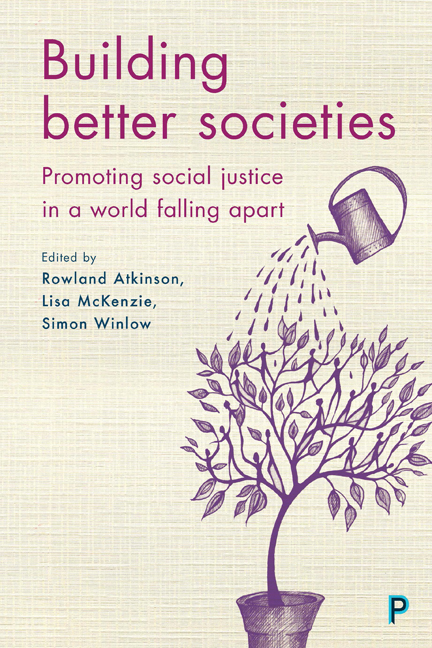Five - Confronting the roots of violent behaviour
Published online by Cambridge University Press: 05 April 2022
Summary
… it would be absurd to claim that rage's best days are behind it. (Sloterdijk, 2011, p 227)
Introduction
Any conversation about humanity's capacity for cruelty, destruction, sadism or ‘evil’ is a difficult one, and the conversation I engage in during this chapter on confronting violence is no exception. I want to argue that we must confront an uncomfortable and sad truth – the cold reality that it is currently not possible to imagine a world fully free of human violence and aggression. Every day we are bombarded with new stories of human cruelty, viciousness and sadism from across the globe, many of which we seem unable to adequately explain. The seeming inexplicability of much violent behaviour may often generate a sense that the times we live in are in some way bereft of a common morality or mutual sense of compassion. Certainly our internet, print and TV news media are often fixed on unsettling stories of murder, gang violence, riots, sexual assaults, child abuse, domestic violence, civil war and terrorism. In addition we find ourselves immersed in films and video games containing numerous images and interactive experiences of extreme violence and human suffering. Even some children's television programmes and toys make frequent reference to the utility of aggressive behaviour for ‘getting things done’, such as Ben 10, Transformers, Marvel's Avengers or Teenage Mutant Ninja Turtles, in which violence is regularly used by the heroic central characters, and is always portrayed as justifiable and righteous. The seeming ubiquity of violence in society, and the apparent appetite for it when packaged up as a consumer product, might help us to understand why many people hold the view that violence is ingrained in our nature, that we are naturally wicked, selfish, competitive animals, and that any attempts to dispel hostilities, anger and rage are therefore futile and pointless. How, then, can we begin to understand and challenge these aspects of our culture and behaviour?
As a scholar with a long-standing interest in violence and having spent several years researching it, I feel obligated to be optimistic about the possibility of more peaceful social relations. However, in offering an honest assessment, I would also confess that I rarely do feel a sense of optimism.
- Type
- Chapter
- Information
- Building Better SocietiesPromoting Social Justice in a World Falling Apart, pp. 55 - 66Publisher: Bristol University PressPrint publication year: 2017



